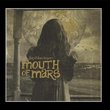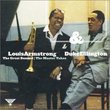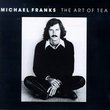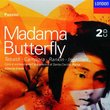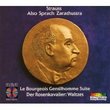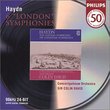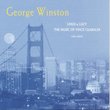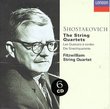| All Artists: R. Strauss, Battle, Levine, Vienna Philharmonic Title: Ariadne Auf Naxos Members Wishing: 0 Total Copies: 0 Label: Polygram Records Release Date: 10/25/1990 Genre: Classical Style: Opera & Classical Vocal Number of Discs: 1 SwapaCD Credits: 1 Other Editions: Ariadne Auf Naxos UPC: 028941922526 |
Search - R. Strauss, Battle, Levine :: Ariadne Auf Naxos
 | R. Strauss, Battle, Levine Ariadne Auf Naxos Genre: Classical
|
CD DetailsSimilar CDs
Similarly Requested CDs
|
CD ReviewsA classic, surely... Howard G Brown | Port St. Lucie, FL USA | 11/22/2003 (5 out of 5 stars) "the EMI mono set, conducted by von Karajan, is widely regarded a classic -- exemplary singers who completely understand their roles and the culture that produced Strauss and von Hoffmansthal, a master of the craft to guide and shape the effort (Walter Legge) -- and, oh yeah, that von Karajan guy, too!The same can be said for this performance, recorded live in Salzburg, with perhaps restricted mono sound compared with Legge's production -- also mono, but beautiful enough to make you wonder why they bothered with stereo at all!What clinches this set for me is the presence of Lisa Della Casa: beautiful voice, beautiful woman -- the perfect singing actress in Mozart and Strauss, in my opinion. And Bohm is the conductor, with a complete understanding of all things Straussian. And the rest of the cast is supurb. It seems the 50s were a golden age for Strauss, and we seem to be enjoying a similar richness today: Jesse Norman, Sumi Jo, and so many others. Lucky us.As for the EMI recording -- I still own the lp set. And lps still sound pretty good, lest we forget.P.S. This is definitely not the Levine recording, which is listed as a DG Double elsewhere -- a good buy if you are in the market for it. This ARIADNE is probably from the same performance as the Gala set, but the sound is far better. Similarly, there is a Gala IL TROVATORE with Price and Correli, cond. by von Karajan that is available on DG (look for it!) with superior sound. I have personal experience with both recordings -- all 4, actually -- and the DG issues of both Strauss and Verdi are, happily, in my collection.I ordered this DG/Bohm ARIADNE on these pages, among the used items." ICH BIN EIN ANDERER ALS ICH WAR Mark E. Farrington | East Syracuse, NY | 04/28/2010 (5 out of 5 stars) "The caption, "I am changed from what I was", sung by Bacchus to Ariadne in the Closing Scene, applies to Richard Strauss. Gone is the 100-piece orchestra; banished are the noxious passions and neuroses of SALOME & ELEKTRA, paradoxically arousing pity; scaled back is the laid-on-thick sensuality of DER ROSENKAVALIER. In their place come Neoclassical beauty and repose; chamber music 'filagree'; and the rich, emotional ambivalance of a story-within-a-story (in this case, an opera-within-an-opera).
In spite of all the atrocities and "isms" about to be unleashed on an unsuspecting 20th Century, with both versions of ARIADNE AUF NAXOS (the 1912, with LE BOURGEOIS GENTILHOMME as the framework; the 1916, with its "backstage," operatic Prologue) Strauss and Hugo von Hofmannsthal jumped ahead of Igor Stravinsky's "modernism" and 'intuited' aspects of what we now call "post-moderism." To add insult to the Great Igor's injury, Strauss even beat Stravinsky's PULCINELLA to the Neoclassical punch by several years - and not only with the 1912 BOURGEOIS Incidental Music. No wonder Stravinsky was rattled enough to intone, "ARIADNE makes me want to scream." It was as if to say : "How DARE he...That money-grubbing, Wagnerian-Bavarian country squire...That's MY turf." (No doubt this was unconscious on Stravinsky's part. Still, he was too great a genius, and - like Strauss- too much of a card shark, not to know that he'd been trumped.) In any case, the gently ironic detachment of ROSENKAVALIER, with its ambivalent "happy ending" - perhaps Strauss's first operatic attempt at Mozart's pungent mixture of objectivity and subjectivity - is explored further and more deeply in ARIADNE AUF NAXOS. With its patently Mozartean juxtaposition of Opera Buffa characters (in the Prologue) and Harlequin figures (in the Opera "proper") against classic Opera Seria types, it results in what some of us (including M. Owen Lee and Sir Tommy Beecham) regard as Strauss's best opera. Along with DIE FRAU OHNE SCHATTEN, Karl Bohm made a specialty of ARIADNE AUF NAXOS. In Nazi-occupied Vienna, on Strauss's 80th birthday (June 11, 1944) and with Strauss himself in the audience, he conducted a legendary gala performance with Maria Reining as Ariadne and Irmgard Seefried as the Composer. (It survives on early magnetic tape, in astonishingly good sound.) Ten years later, at the Salzburg Festival, Bohm conducted the performance featured in this set. It is even greater. Lisa Della Casa never made a complete, commercial recording of ARIADNE, which makes this a recording "not to be without." Her silvery, diamond-edged BEL CANTO is never cold, but a polished, transparent instrument through which we experience great passion and spirituality. Rudolf Schock's Bacchus may not be as "tidy" as his studio effort with Karajan & Schwarzkopf (recorded one month earlier), but it goes a long way to dispell the false reputation of this role as "wooden" or "clumsy." Irmgard Seefried's performance, here, as the Composer, is far more passionate and spontaneous than in 1944 or in the Karajan recording; in the 'exasperated' passages she really cuts loose, showing us the genius AND the adolescence of this character. In the Prologue, the "Haushofmeister" (i.e.,the Major-Domo), a speaking part only, is brought to life by actor Alfred Neugebauer - in both this Salzburg recording and the Karajan studio set. Both performances are superb...He advises the assembled, backstage Company that, to make double-sure that a scheduled fireworks display will be punctual, the Harlequinade and the Opera Seria must be performed simultaneously. Before the live Salzburg audience, his creepy, obsequiously mannered attempt to smooth over his orders - with mention of the handsome payment to come - borders on the Expressionistic : "...einer Munifizenten Gratifikation". ("Langsam, Wozzeck, langsam !") Still, in the Karajan set, his reptilian, self-importantly understated unctiousness (aided by the close-miked studio engineering) is positively SLIMY. Given the fact that this is a live, unedited performance, there are amazingly few hitches (far less than in 1944). In the Prologue, one possible hitch even adds to the "atmosphere" : at the end of the little love scene between the Composer and Zerbinetta, she turns to him and says "Ich muss fort..." ("I must go"). Just at that moment, a tiny, leaping clarinet figure aquires a rough-edged tone - enhancing the "Yeah, Right" irony of the moment. It even seems to anticipate the strident clarinet lines in Prokofiev's score to IVAN THE TERRIBLE. But the lion's share of credit must go to Karl Bohm himself. In spite of 1950s radio-mono sound, Bohm organically brings to the surface endless details and odd pockets of color in this intricate, treasure-chest of a score - something for which Kempe and others seem to need "studio conditions" in achieving the same clarity. Not least among Bohm's feats is the way that the Closing Scene, the great love duet between Bacchus and Ariadne, is made more lyrical than it has ever been, and how he gently bursts the bonds of the "story-within-a-story"...So that by the end of the performance, a truly receptive listener is also "changed from what I was."" |

 Track Listings (10) - Disc #1
Track Listings (10) - Disc #1

![Beethoven: Symphonies Nos. 3 & 4 [Hybrid SACD]](https://nationalbookswap.com/cd//m/42/5342/6165342.jpg)

